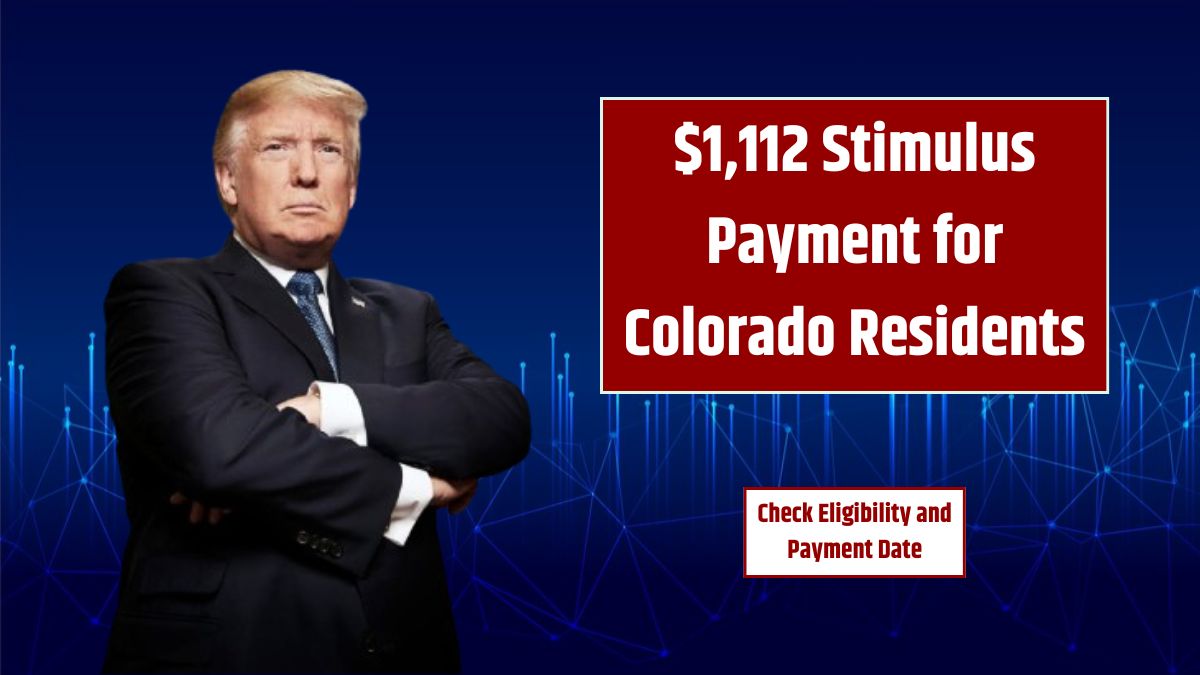In 2025, Colorado residents had the opportunity to receive a $1112 stimulus payment through the Colorado Cash Back program. This initiative was designed to help residents manage rising costs due to inflation and other economic pressures. The payment was part of the state’s budget surplus return and provided financial relief to taxpayers who filed a 2022 state income tax return.
If you’re wondering whether you qualified for this payment, when it was distributed, or how to check your status, this article breaks down everything you need to know.
Payment
Here’s a quick summary of the key details of the $1112 stimulus payment:
| Key Point | Details |
|---|---|
| Total Payment | $1112 for single filers; $2224 for joint filers |
| Eligibility | Colorado residents with an AGI of $75,000 (single) or $150,000 (joint) |
| Payment Start Date | Direct deposits began in August 2025 |
| Paper Checks | Mailed starting in September 2025 |
| Official Resources | Colorado Department of Revenue |
The Colorado Cash Back program aimed to help residents cover everyday expenses, pay off debt, or save for future needs.
Meaning
The Colorado Cash Back program was announced by Governor Jared Polis as a way to return part of the state’s budget surplus to taxpayers. Rising living costs and inflation created financial challenges for many residents, so the program was designed to provide direct relief.
Eligible taxpayers received:
- $1112 for single filers
- $2224 for joint filers
The payment was structured in two parts:
- A base payment of $750 (single) or $1500 (joint)
- A supplemental payment of $362 (single) or $724 (joint) based on income levels
Eligibility
To qualify for the $1112 Colorado Cash Back payment, residents had to meet certain criteria:
- Residency: Must have been a full-time Colorado resident for the entire year of 2022 (January 1, 2022 – December 31, 2022).
- Income Limits:
- Single filers: Adjusted Gross Income (AGI) of $75,000 or less
- Married couples filing jointly: AGI of $150,000 or less
- Tax Filing Status: Must have filed a 2022 Colorado state income tax return.
- Dependents: Individuals claimed as dependents on someone else’s tax return were not eligible.
- Exclusions: Certain groups, such as those incarcerated for most of 2022, were not eligible.
Amount
The amount received depended on filing status and income:
| Filing Status | Base Payment | Supplemental Payment | Total Payment |
|---|---|---|---|
| Single Filer | $750 | $362 | $1112 |
| Joint Filers | $1500 | $724 | $2224 |
For example:
- A single filer earning $60,000 in 2022 would receive the full $1112.
- A married couple with a combined AGI of $100,000 would receive $2224.
Timeline
The payments were distributed in phases:
- Direct Deposits: Began rolling out in August 2025.
- Paper Checks: Mailed starting in September 2025, with distribution continuing into the fall.
If you provided direct deposit information on your tax return, you received your payment faster. Those without direct deposit details received a paper check by mail.
Tracking
If you qualified but hadn’t received your payment, you could track it through the following steps:
Verify Eligibility
Ensure you filed a 2022 state tax return and met the income requirements.
Revenue Portal
The Colorado Department of Revenue provides an online tool to check payment status.
Contact Support
If you experienced delays or errors, you could contact the Colorado Department of Revenue through their official website or customer service phone lines.
Managing
The $1112 payment provided financial relief, but how you used it could make a difference. Here are a few smart ways to manage your stimulus payment:
- Pay Down Debt: Use it to reduce high-interest credit card debt or loans.
- Save for Emergencies: If you don’t need the money immediately, consider adding it to an emergency fund.
- Support Local Businesses: Spending within your community helps strengthen the local economy.
Comparison
Colorado wasn’t the only state offering stimulus payments. Here’s how it compared to other programs:
| State | Program Name | Payment Amount | Eligibility Factors |
|---|---|---|---|
| Colorado | Colorado Cash Back | $1112 (single), $2224 (joint) | Income under $75,000 (single) or $150,000 (joint) |
| California | Middle-Class Tax Refund | $200 – $1050 | Based on income and tax filing status |
| New York | NY State Child Tax Credit | $100 – $500 | Families with children |
| Illinois | Family Relief Plan | $50 (single), $100 (joint) | Income-based eligibility |
While each program had different qualifications, they all aimed to provide financial relief to residents facing rising costs.
Taxes
One key benefit of the Colorado Cash Back payment was that it was not taxable at the federal or state level. This meant:
- You did not have to report it as income on your 2025 tax return.
- However, interest or investment income earned from the payment may be taxable.
If you deposited the money into a high-yield savings account or invested it, any earnings could be subject to taxes.
Future
The Colorado Cash Back program was a one-time initiative, but there could be similar programs in the future. If the state continues to have budget surpluses, lawmakers may introduce additional relief measures such as:
- Tax rebates for low-income residents
- Energy assistance programs to offset utility costs
- Housing relief initiatives to help with rent and mortgage payments
Staying informed through the Colorado Department of Revenue’s website will help residents take advantage of future opportunities.
FAQs
Who qualified for the $1112 Colorado payment?
Colorado residents with an AGI under $75,000 (single) or $150,000 (joint).
When were the payments sent out?
Direct deposits began in August 2025, and paper checks started in September 2025.
Is the Colorado Cash Back payment taxable?
No, the payment is not taxable at the federal or state level.
How do I check my stimulus payment status?
Visit the Colorado Department of Revenue website for tracking tools.
Will there be another stimulus payment in Colorado?
Future payments depend on state budget surpluses and government decisions.






